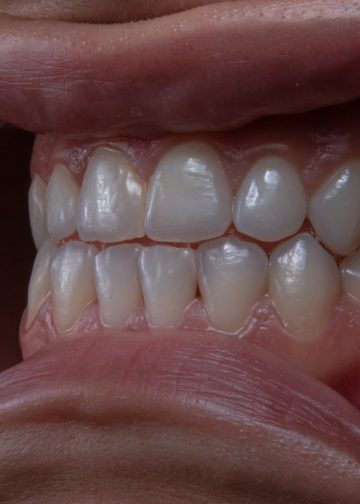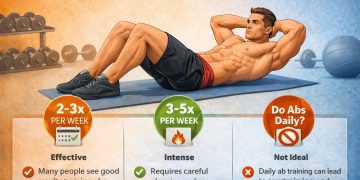Key Takeaways
- Hydration and nutrition are foundational to physical and mental well-being.
- Daily movement, even in small bursts, significantly boosts health and mood.
- Mindfulness and gratitude improve emotional resilience and reduce stress
- Sleep, planning, and reflection play a critical role in overall wellness.
We are shifting to a more sedentary lifestyle. This shift has led to increased physical inactivity, mindless snacking, and a lot of time spent sitting around. This lifestyle also poses serious health risks, including type 2 diabetes, hypertension etc.
15 Daily Habits For A Healthier Lifestyle
Start Your Day With Water
After a few hours of sleep, your body wakes up feeling a bit dehydrated. Starting your day with a glass of water jumpstarts metabolism, hydrates your cells, flush out toxins, and sharpens mental focus. You don’t need to go for fancy lemon-infused water or detox drinks, just plain room-temperature water does the trick! Keeping a glass or bottle by your bedside makes it super easy to grab when you wake up.
Eat A Protein-Rich Breakfast
Skipping breakfast or munching on sugary, high-carb cereals will definitely cause blood sugar levels soaring, only to leave you feeling drained by mid-morning. Instead, why not choose a balanced breakfast that includes protein, healthy fats, and fiber? Try eggs, Greek yogurt, oats topped with nuts, or a smoothie packed with protein powder and fruit, these are all fantastic options. A hearty breakfast will keep your appetite in check and also boosts your focus and mood throughout the day.
Move Your Body For At Least 30 Minutes
You don’t need to spend hours at the gym to stay fit. Just a quick 30-minute walk, a bike ride around your neighborhood, some yoga at home, or even bodyweight exercises can do the trick. Moving your body every day is great for your heart, gives you a boost of energy, helps you manage your weight, and can even ease stress. The secret is to be consistent. Pick activities that you genuinely enjoy so it feels more like fun and less like a chore.
Sit Less, Stand More
Even if you hit the gym regularly, spending too much time sitting takes a toll on your health. Try to make it a point to take short breaks every hour; stand up, stretch, take a little walk, or even do a few squats or shoulder rolls. If you’re working at a desk, think about using a standing desk or taking your calls while on the move. These little changes can boost your circulation, ease back pain, and keep your energy levels steady throughout the day.
Eat More Whole Foods
Living a healthy lifestyle starts with the choices you make at mealtime. Make it a point to fill your plate with whole foods like fresh fruits, vibrant vegetables, hearty whole grains, nutritious legumes, crunchy nuts, and lean proteins. Try to cut back on processed snacks, sugary beverages, and refined carbs. Cooking at home gives you the power to choose your ingredients and control your portion sizes. Remember to keep things interesting by using a variety of colors and nutrients from different food sources!
Practice Mindful Eating
Rushed meals and distracted eating (e.g., eating in front of the TV) leads to overeating and poor digestion. Instead, slow down and savor your meals. Chew thoroughly, listen to hunger and fullness cues, and avoid multitasking while eating. Mindful eating improves digestion, prevents bloating, and helps you develop a healthier relationship with food.
Stay Hydrated Throughout The Day
Don’t just wait until you’re thirsty to drink water! Keep a reusable water bottle with you and take small sips throughout the day. Staying hydrated is crucial for so many things your body does like digestion, producing energy, detoxing, and even keeping your joints moving smoothly. If you find it hard to drink enough water, consider setting reminders every hour or jazzing it up with some fruit slices or fresh herbs like mint or basil.
Limit Screen Time—Especially At Night
Spending too much time in front of screens can really take a toll on your eyes, mess with your sleep, and leave you feeling mentally drained. Try setting limits on your device usage, especially as bedtime approaches. Try to cut down on blue light exposure at least an hour before you hit the hay, this could mean turning off your screens or using blue light filters. Instead, use that time to unwind with a good book, do some light stretching, or jot down your thoughts in a journal.
Practice Deep Breathing or Meditation
Taking just a few minutes each day to practice deep breathing or mindfulness meditation lowers stress and anxiety levels. You don’t need fancy gear or apps, just find a quiet spot, concentrate on your breath, and allow your thoughts to drift by without judging them. Even dedicating five to ten minutes daily to meditation can soothe your nervous system, sharpen your focus, and boost your emotional resilience.
Get Quality Sleep Every Night
Sleep is that magical time when your body gets to recover, rebuild, and reset itself. Try to aim for about 7 to 9 hours of solid, uninterrupted sleep. Establishing a consistent bedtime routine can really help—think dimming the lights, keeping your room nice and cool, being clear of caffeine in the evening, and going to bed and waking up at the same time every day. A good night’s sleep can do wonders for your memory, boost your immune system, rev up your metabolism, and enhance your emotional resilience.
Plan Your Day With Intention
Start your day by taking 5 to 10 minutes to map out what you need to accomplish. Jot down your top priorities, appointments, and goals. This simple practice helps clear your mind, sharpens your focus, and boosts your productivity. For an even smoother start, take a moment the night before to review your to-do list, so you wake up ready to tackle the day. Using a planner or a digital task manager can really keep you organized and on track.
Practice Gratitude
Shifting your focus from what you lack to what you have can really change your perspective and enhance your mental well-being. Each day, take a moment to jot down three things you’re thankful for. They can be little things (like a beautiful sunny day or a comforting cup of tea) or bigger ones (such as a caring friend or a recent promotion). Keeping a gratitude journal helps train your mind to recognize the good in life, which can lead to greater happiness and reduced stress.
Spend Time Outdoors
Breathing in fresh air and soaking up some natural sunlight boosts your mood and overall health. Aim to spend at least 15 to 30 minutes outdoors every day if that means taking a stroll in the park, tending to your garden, or simply relaxing on your balcony. Getting that natural light is great for regulating your circadian rhythm, boosting your vitamin D levels, and it can even help ease feelings of anxiety and depression.
Limit Sugar And Junk Food
While it's totally okay to indulge in a treat now and then, making a habit of munching on sugary snacks and ultra-processed junk food can really mess with your blood sugar, lead to weight gain, cause inflammation, and leave you feeling drained. So, take a moment to read those labels, cut back on sugary drinks (yes, that includes fruit juices), and try swapping your snacks for healthier options like fresh fruits, nuts, yogurt, or even some air-popped popcorn. Your body and mind will definitely appreciate the upgrade in fuel!
Reflect And Unwind Before Bed
Before you hit the hay, take a moment to think back on your day. Did you achieve what you aimed for? Is there anything you could do better? This little ritual of self-awareness will help you grow. Use this time to disconnect and write down your thoughts in a journal, do some light stretching, or indulge in a soothing bedtime routine like listening to gentle music or practicing some deep breathing. A calming wind-down routine sets you up for a good night's sleep and leaves you feeling refreshed for the day ahead.
Conclusion
These 15 daily habits aren’t just quick fixes or strict rules, they’re practical, sustainable steps that lay the groundwork for a healthier life. You don’t have to tackle all of them at once. Pick one or two that really resonate with your current lifestyle and gradually use more as they start to feel like second nature.





















